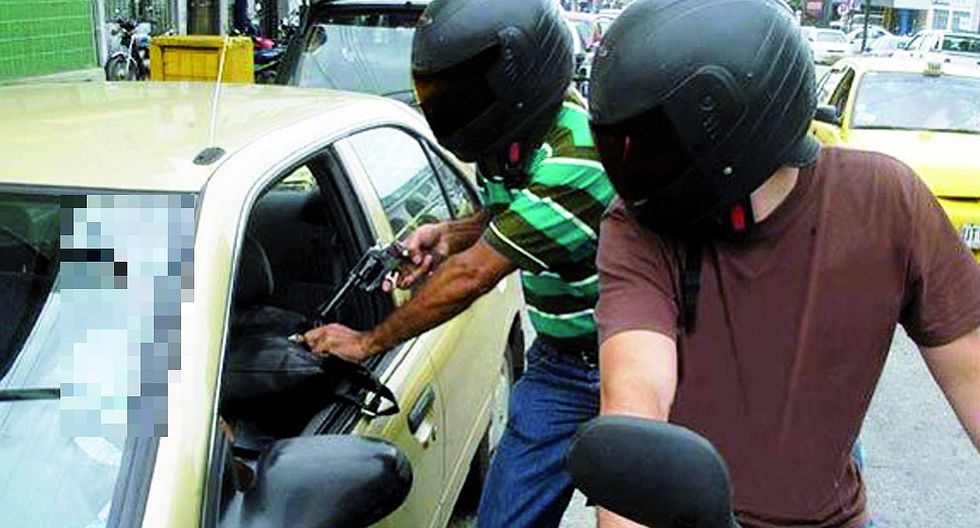How to Survive a Hostage Situation
In our increasingly interconnected world, the reality of encountering a hostage situation, while still rare, is a concern that spans across borders and societies. These scenarios, driven by motives as varied as political agendas, financial gain, or personal vendettas, pose unique challenges to the individuals involved and the broader community.
This article aims to dissect the complexity of hostage situations, offering insights into the motivations of captors, practical strategies for those caught in such predicaments, and guidance for families navigating the tumultuous journey towards resolution. By understanding the dynamics at play, individuals can arm themselves with knowledge, potentially increasing survivability in these extreme circumstances.
Understand the Hostage Taker's Motives
Hostage situations are multifaceted events that demand a nuanced understanding of the captors’ motives. These can range from political extremists seeking to further a cause, to criminals motivated by ransom, or individuals driven by personal grievances. Each scenario presents different risks and requires tailored responses.
Political hostages, for example, might be used as bargaining chips in negotiations, subjected to propaganda, or threatened to exert pressure on governments or organizations. Criminal motives often revolve around financial gain, leading to a more transactional approach to hostages’ lives. Personal motive kidnappings can be the most unpredictable, stemming from emotional turmoil or mental illness, complicating negotiation efforts.
Understanding these motives is pivotal for hostages, as it can influence their survival strategy. For instance, hostages may find that showing empathy towards a captor with personal grievances could humanize them in the captor’s eyes, potentially leading to better treatment. Conversely, in politically motivated situations, maintaining a neutral stance without engaging in ideological debates could prevent further antagonization.
What To Do If You're Taken Hostage
1. Initial Moments: Immediate Actions for Hostages
The initial moments following abduction are critical. Hostages should prioritize their immediate safety, often requiring them to adopt a compliant attitude to avoid escalating the situation. This does not mean acquiescing to every demand but rather avoiding unnecessary confrontation. Assessing the environment discreetly for potential escape routes or safe havens is also crucial, though any action should be measured and cautious.
Simultaneously, hostages should begin to observe their captors closely, noting details like physical features, language, or behavioral patterns. These observations could be invaluable to rescue teams if an opportunity to communicate arises. Additionally, hostages should try to establish a mental map of their location, noting sounds, smells, or any other indicators of their environment that might assist in their rescue.
2. During Capture: Survival Strategies for Hostages
Long-term survival in a hostage situation hinges on both physical and psychological resilience. Hostages should strive to maintain their health through exercise, as limited as it may be, and by eating and drinking whatever is provided, unless there is reason to suspect it is unsafe. Psychologically, establishing routines can provide a sense of normalcy and control, which is vital for mental health.
Building rapport with captors can also be a survival strategy. This does not mean sympathizing with their cause but rather engaging in basic human interaction when safe to do so. Demonstrating compliance and non-threatening behavior can lead to better treatment and might even create opportunities for negotiation or escape.
3. Escaping Capture: Communication and Captor Demands
Communication plays a critical role in the resolution of hostage situations. The introduction of ransom demands introduces a complex negotiation process, where the skills of experienced hostage negotiators become indispensable. These professionals understand the psychological and strategic elements of negotiation, working to create a dialogue with captors while aiming to ensure the safety of hostages.
Hostages, when given the opportunity to communicate, should aim to convey calmness and resilience, without revealing too much personal information that could be used manipulatively. Following the negotiators’ guidance is crucial, as they have the expertise to navigate the delicate balance between meeting some of the captors’ demands and securing the hostages’ release.
What To Do if Your Family Member is Taken Hostage
1. Report the Hostage Situation
When an American citizen is taken hostage outside the United States, it’s important to report the incident promptly to both the Federal Bureau of Investigation (FBI) and the U.S. State Department.
To report a situation to the FBI, families or representatives should contact the nearest FBI field office or legal attaché office (located in U.S. embassies and consulates worldwide). Information can also be submitted through the FBI’s website, which has a specific section for reporting such incidents.
Simultaneously, the U.S. State Department provides victim assistance through its Office of American Citizens Services and Crisis Management (ACS). Reporting to the State Department can be done by contacting the nearest U.S. embassy or consulate, or through the 24-hour Emergency Center in Washington, D.C. The State Department coordinates with foreign governments, provides updates to families, and supports the overall recovery effort where possible.
If you’re not an American citizen, contact your Embassy in the country where your family member was taken hostage to report the incident.
2. Decide on a Path Forward
Families find themselves in a distressing position during hostage crises, often feeling helpless; however, their role is often pivotal in the final outcome. Families must quickly decide who to trust in such a crisis.
If the hostage situation is occurring within the United States, turning to law enforcement is often the best first course of action. Cooperating with law enforcement and providing any relevant information about the hostage can aid in their rescue. Engaging with media should be done cautiously and usually under the guidance of law enforcement to avoid jeopardizing the safety of the hostage.
However, if the hostage situation is occurring outside of the United States, families must be extremely cautious about turning to local law enforcement. Depending on the region or country, law enforcement may have cooperative relationships with criminal or terror organizations and make matters far worse. In the worst case, talking to local law enforcement can prove to be a fatal mistake.
If you need help figuring out what to do in your situation, you can contact the Hyperion 24/7 crisis operations team. An experienced Hyperion Security Advisor can help you understand your situation and provide you with options on how to proceed forward.
Limitations of U.S. Government Involvement in Hostage Rescue Operations
While the U.S. government employs significant resources towards the recovery of American hostages abroad, in most circumstances, direct intervention (particularly in the form of a hostage rescue operation) is typically not something the U.S. government will do. This can be due to a lack of actionable intelligence, the high risk of collateral damage, or the potential for exacerbating the situation for the hostages. Additionally, the U.S. maintains a firm policy against negotiating with terrorists or paying ransom, based on the belief that this would encourage further kidnappings and fund criminal or terrorist activities.
In situations where the U.S. government assesses that a rescue operation could result in unacceptable risks to the hostages or the rescue team, efforts may focus instead on diplomatic channels, leveraging international partners, or supporting local law enforcement in the host country. Furthermore, when hostages are held in regions where the U.S. has limited operational reach or diplomatic influence, the options for direct intervention diminish. Oftentimes, the U.S. government’s recommendation is to consult with a private professional security organization.
Understanding these limitations is crucial for families and the public, highlighting the complex balance between taking decisive action and ensuring the safety of hostages.
Financial Implications and Kidnap and Ransom Insurance
The financial toll of a hostage situation can be devastating. Ransom payments, even when negotiated down, can be significant ranging from tens of thousands of dollars to millions of dollars. Then there are the costs of hiring a private hostage rescue team which starts at $30,000 per day and can easily be much higher, depending on the location of the hostage and the resources required to extract the hostage (i.e. private aircraft, watercraft, etc.).
In addition to all of the operational costs of a hostage rescue operation, the aftermath often involves substantial costs for the victim’s psychological and physical recovery.
For this reason, if you or your employees are planning to travel outside of the US – especially to a high-risk region or country for kidnappings – you should look at purchasing a kidnap and ransom insurance policy for yourself or your employees. Kidnap and ransom insurance policies typically cover ransom payments, negotiation services, rescue operations, and post-release care, providing a financial safety net for individuals and corporations alike.
Conclusion
Navigating a hostage situation demands awareness, preparation, and resilience. Understanding the captors’ motives, employing survival strategies, and the roles of communication, families, and professional negotiators are all critical components of increasing the chances of a safe resolution.
While the hope is that such knowledge never needs to be applied, its value cannot be underestimated in ensuring preparedness for such extreme events. The collective effort of individuals, families, and professionals in understanding and managing these situations can make a significant difference in their outcomes.



Leave a Reply
You must be logged in to post a comment.